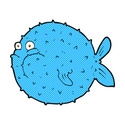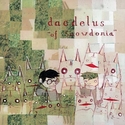What are you reading today/book club
Re: What are you reading today/book club
I'm reading Smoke Gets in Your Eyes by Caitlin Doughty right now and am really enjoying it. Very cool insights into the mortuary industry/cultural landscape of death in the West taken from working in the industry. References a lot of ethnography/anthropological study that I read while in school so that's kind of an added bonus. This is sort of perfect moment for me to be reading this while I'm preparing myself for the first death of one of my grandparents. It has been a bit cathartic. The writing is very easy to digest and not at all pretentious or jargon-y; it's pop-sociology kind of stuff.
She has a pretty good YouTube series called "Ask a Mortician" that's definitely worth watching if you're bored.
I also finally read Breakfast at Tiffany's a couple of weeks ago, and I'm surprised it took me so long. Capote's In Cold Blood is one of my favorites. Definitely a neat read, especially if you like Burroughs/Vonnegut.
She has a pretty good YouTube series called "Ask a Mortician" that's definitely worth watching if you're bored.
I also finally read Breakfast at Tiffany's a couple of weeks ago, and I'm surprised it took me so long. Capote's In Cold Blood is one of my favorites. Definitely a neat read, especially if you like Burroughs/Vonnegut.
- 3
ig: hharrissonn
tumblr: dyetransfer.tumblr.com
tumblr: dyetransfer.tumblr.com
-

hharrissonn - Look Arena Champion
- Posts: 190
- Joined: Sat Aug 10, 2013 2:35 pm
- Location: MD, USA
- Reputation: 1329
Re: What are you reading today/book club
I also took a little too long to read The Life and Death of the Great American City and just finished it a few days ago. I was surprised how modern the book felt considering that it’s over five and a half decades old. I enjoyed reading about housing density in cities and diversity of street life. The idea of implementing a sliding scale rent-to-own system for public housing was also very interesting, particularly since the author’s primary example for implementation was Baltimore rowhomes and I live in a Baltimore rowhouse. I’m also curious to know how much of this book’s dogma has been adopted into popular planning theory. Some bits seem easy enough to implement with proper incentives for new development and zoning laws, but other ideas presented by the author seem inherently difficult to implement unless city districts are given much more power to conduct their own affairs independent from city government.
- 4
-

dakaf_fal - Posts: 92
- Joined: Sun Oct 18, 2015 10:13 am
- Location: Birdland
- Reputation: 369
Re: What are you reading today/book club
has anyone explored neal stephensons works outside diamond age and snowcrash ? what are the hits? I probably wont read cryptonomicon.
- 2
-

can- - Posts: 3015
- Joined: Wed Jul 10, 2013 10:34 pm
- Reputation: 11408
Re: What are you reading today/book club
read most post-snowcrash but baroque cycle which was too stuffy for me to get into. havent gotten to the dodo one yet
- cryptonomicon is multiple parts, some ww2 stuff and some "modern" (90s) financial manuevering. was a decent read but it's been a while
- anathem is pretty cool, the premise is that there are monks but they study science and math instead of religion. then aliens are spotted.
- mongoliad is a long saga (4 books?) set in the mongolian era (wow shocker) cowritten with a bunch of other authors. very swordy. i liked them.
- reamde is a modern day thriller, very techno friendly (social networks, gold farming, etc). i didn't love it.
- seveneves - moon shatters and destroys earth, with some folks being saved by launching a spaceship. 3rd act is a millenia later.
usually the 3rd act is batshit crazy and not as connected to the rest. my biggest suggestions would be anathem and seveneves, in that order
- cryptonomicon is multiple parts, some ww2 stuff and some "modern" (90s) financial manuevering. was a decent read but it's been a while
- anathem is pretty cool, the premise is that there are monks but they study science and math instead of religion. then aliens are spotted.
- mongoliad is a long saga (4 books?) set in the mongolian era (wow shocker) cowritten with a bunch of other authors. very swordy. i liked them.
- reamde is a modern day thriller, very techno friendly (social networks, gold farming, etc). i didn't love it.
- seveneves - moon shatters and destroys earth, with some folks being saved by launching a spaceship. 3rd act is a millenia later.
usually the 3rd act is batshit crazy and not as connected to the rest. my biggest suggestions would be anathem and seveneves, in that order
- 2
"Let's be vagabonds." - Yohji Yamamoto
-

rjbman - Posts: 1560
- Joined: Sun Sep 29, 2013 11:34 pm
- Location: CO
- Reputation: 6846
Re: What are you reading today/book club
need a sci fi nerd @rjbman, some leguin etc dealt with the idea of a garden right? (coming at this via donna haraway who refers in passing).
any other notable gardens ? whats that 70s sci fi film with hydroponics spaceship where things go wrong..
any other notable gardens ? whats that 70s sci fi film with hydroponics spaceship where things go wrong..
- 2
- kickingthefly
- Posts: 98
- Joined: Sun Jan 21, 2018 10:16 am
- Reputation: 276
Re: What are you reading today/book club
I've been having a mafia movie stint recently and so decided to pick up The Godfather by Puzo. It feels like I'm running through it, and I'm unsure if it's because of how much I like the book for itself, or if it's because I'm having the movie do a lot of the imaginative heavy-lifting. What do y'all think about the experience of reading a book after watching a movie or vice versa. I'm not so interested in the "better than" debate, but instead, how the experience of one affects the experience of the other.
- 0
-

julius - Posts: 27
- Joined: Tue Mar 03, 2015 1:19 am
- Reputation: 95
Re: What are you reading today/book club
@rjbman yeah thats the one thank you. still need to read some leguin.
julius, i read the godfather i think after seeing the film and found it pretty much a potboiler? dont recall any of hte physical poetry of hte film. i think bad books make good films is a decent rule of thumb (solaris, stalker etc)
julius, i read the godfather i think after seeing the film and found it pretty much a potboiler? dont recall any of hte physical poetry of hte film. i think bad books make good films is a decent rule of thumb (solaris, stalker etc)
- 2
- kickingthefly
- Posts: 98
- Joined: Sun Jan 21, 2018 10:16 am
- Reputation: 276
Re: What are you reading today/book club
PSA to anyone who likes scifi: the three body problem series by liu cixin is virulently sexist, but it doesn't really crop up until the second book, at which point you've already invested 600+ pages of your time, which makes the realization all the more angst-inducing; AVOID
- 4
-

Ques - Posts: 685
- Joined: Mon Dec 23, 2013 8:45 pm
- Location: virginia
- Reputation: 3668
Re: What are you reading today/book club
anyone know what I should read if I liked both of Ben Lerner’s novels but moreso the first one??
- 0
-

soko - Posts: 73
- Joined: Tue Jun 17, 2014 10:16 am
- Location: Toronto
- Reputation: 434
Re: What are you reading today/book club
Currently got all these on the go. I will probably start Journey to the End of the Night again as I started it ages ago and forgot a lot of what's happened so far. Hunger is fantastic though


- 2
-

surfdude69 - Posts: 30
- Joined: Sun Mar 20, 2016 2:36 pm
- Reputation: 210
Re: What are you reading today/book club
I'm writing a short story, can someone read it and be brutally honest with me?
- 1
-

Copeland - Posts: 262
- Joined: Sun Jan 18, 2015 9:40 pm
- Reputation: 794
Re: What are you reading today/book club
Anyone read Stoner by John Williams? I can't see what the fuss is about. The sexism is a bit much/I'm not seeing the point in it.
- 0
-

JewTurk - Posts: 590
- Joined: Thu May 29, 2014 3:20 am
- Reputation: 1856
Re: What are you reading today/book club
copeland, i read this quickly but i like it! a few thoughts tho
-reads a bit grad student-y, even 'cerebral' writers (say, tom mccarthy, elvia wilk) do a lot more 'show not tell', yknow? like tom was once saying he thought about making the protagonist of remainder an artist- but then the whole thing would just be a normal day's work. if you make the surface more blank, it might force you to 'see' more interesting stuff too.
-feel dialogue sounds stilted, which is perhaps intentional, but i still dont feel it. perhaps to do with the above, like people saying 'clever' things?
-lagos traffic patterns, man i have seen that stuff a lot.
-its sander not sanders dude
-reads a bit grad student-y, even 'cerebral' writers (say, tom mccarthy, elvia wilk) do a lot more 'show not tell', yknow? like tom was once saying he thought about making the protagonist of remainder an artist- but then the whole thing would just be a normal day's work. if you make the surface more blank, it might force you to 'see' more interesting stuff too.
-feel dialogue sounds stilted, which is perhaps intentional, but i still dont feel it. perhaps to do with the above, like people saying 'clever' things?
-lagos traffic patterns, man i have seen that stuff a lot.
-its sander not sanders dude
- 3
- kickingthefly
- Posts: 98
- Joined: Sun Jan 21, 2018 10:16 am
- Reputation: 276
Re: What are you reading today/book club
copeland, i read this quickly but i like it! a few thoughts tho
-reads a bit grad student-y, even 'cerebral' writers (say, tom mccarthy, elvia wilk) do a lot more 'show not tell', yknow? like tom was once saying he thought about making the protagonist of remainder an artist- but then the whole thing would just be a normal day's work. if you make the surface more blank, it might force you to 'see' more interesting stuff too.
-feel dialogue sounds stilted, which is perhaps intentional, but i still dont feel it. perhaps to do with the above, like people saying 'clever' things?
-lagos traffic patterns, man i have seen that stuff a lot.
-its sander not sanders dude
-reads a bit grad student-y, even 'cerebral' writers (say, tom mccarthy, elvia wilk) do a lot more 'show not tell', yknow? like tom was once saying he thought about making the protagonist of remainder an artist- but then the whole thing would just be a normal day's work. if you make the surface more blank, it might force you to 'see' more interesting stuff too.
-feel dialogue sounds stilted, which is perhaps intentional, but i still dont feel it. perhaps to do with the above, like people saying 'clever' things?
-lagos traffic patterns, man i have seen that stuff a lot.
-its sander not sanders dude
- 0
- kickingthefly
- Posts: 98
- Joined: Sun Jan 21, 2018 10:16 am
- Reputation: 276
Re: What are you reading today/book club
I like the Copeland's story overall. Nice bit about the 40k mileage thing. That's how I feel every day.
I think I would be disappointed if there ended up being "a plot" about "what the data is for". Better to leave it opaque
I think I would be disappointed if there ended up being "a plot" about "what the data is for". Better to leave it opaque
- 0

-

bels - Yung Winona
- Posts: 5087
- Joined: Thu Jul 11, 2013 2:43 pm
- Reputation: 18872
Re: What are you reading today/book club
Thank you all for the feedback. I've got a couple more pages I'll post soon.
- 1
-

Copeland - Posts: 262
- Joined: Sun Jan 18, 2015 9:40 pm
- Reputation: 794
Re: What are you reading today/book club
I've been reading some really grotesque books lately, mood pieces if u will. Funny, but it's really difficult for me to keep concentrated on most tasks, especially reading books that require sustained attention to themes and scenes that don't have a lot of, like, shock value to them. I expect that'll change sooner or later but RN I'm preeetty deep in.
Just finished The Sheltering Sky by Paul Bowles (really appreciated a perspective on relationship horror that wasn't my own, ha-ha) after I saw it used as a prop in the movie Bad Timing (1980). It has similar philosophical conversations as one might expect in a Camus novel (I'm not a comparative flaxy expert, tho) but I found that Bowles is way more invested in describing the literal scenes in which his characters struggle than Camus, who seemed to write in narrative form as though it were simply a vehicle for his philosophy. Tell me I'm wrong!
THEN I just finished Child of God and Blood Meridian by McCarthy because I am really taken by the abjection that he's pushing. I don't have much to say about these novels that hasn't been said, but I will say that I've never thought of books as guilty pleasures before reading these last two...
Just finished The Sheltering Sky by Paul Bowles (really appreciated a perspective on relationship horror that wasn't my own, ha-ha) after I saw it used as a prop in the movie Bad Timing (1980). It has similar philosophical conversations as one might expect in a Camus novel (I'm not a comparative flaxy expert, tho) but I found that Bowles is way more invested in describing the literal scenes in which his characters struggle than Camus, who seemed to write in narrative form as though it were simply a vehicle for his philosophy. Tell me I'm wrong!
THEN I just finished Child of God and Blood Meridian by McCarthy because I am really taken by the abjection that he's pushing. I don't have much to say about these novels that hasn't been said, but I will say that I've never thought of books as guilty pleasures before reading these last two...
- 3

-

zevolution - Posts: 118
- Joined: Tue Jul 01, 2014 2:13 am
- Location: NYC
- Reputation: 380
Re: What are you reading today/book club
Gonna try and write a post here even though I'm not sure I have something worthwhile to say plus + I kinda have to overcome my own resentment for the way I write casual sentences.
Over winter break I had the weird idea of habituating myself more towards reading. I had a literal month to just be a NEET so I was playing path of exile and listening to philosophy lecture series. I dive-bombed through The Second Sex, a couple of critical theory books (finally read some of the Horkheimer essay collections), Sartre's Nausea, Baldwin's the fire next time, a couple others.
One day in a bookstore I was actually looking for Freud's Civilization & Its Discontents so I could take a quick look, I'm reading Eros & Civilization by Marcuse for a philosophy independent study that I forced into existence kinda just so I could read Eros & Civilization. They didn't have Civilization & Its Discontents, but they did have Deleuze & Guattari's Anti-Oedipus, so I finally took a looksie at that. I had only really understood Deleuze as philosophy's last great boogeyman.
So, the very short of it is that I'm overwhelmed. Anti-Oedipus is exactly as weird/discomforting/alien as I expected, it is a stylistic jackhammer to the brain. It's also worth the time, and it is a great deal of time, which it takes to process. The foreword to Anti-Oedipus, written by Foucault, is the mortar for the book; Foucault's language is plainer, his goal is to make the book come forward about its goal of addressing the paranoia of fascism (that is, the paranoia that fascism takes advantage of, paranoia that produces fascist behavior). It makes the book out to be the object in the world that has an answer to the concerns which critical theory put forward. Adorno, Horkheimer, and Marcuse all seem to be only concerned (in different ways) that our actions in the name of science, logic, psychology seem to be creating impediments to real human progress and[, instead of producing the ethical guidance we need, away from fascism, towards a community which absolves itself of its most senseless material possessions and exists in a gratification of ideas, unions, differences, explorations, changes, notions of self which defy categorization,] claiming to be """""""depolitical.""""""
And now I suppose I might want to open up the toolbox and start explaining away the concepts, so that I don't sound ridiculous. Here is that, made radically brief: Deleuze reconceptualizes ontology and life until you can really start to image a person like a puppy (in Freud's language, as "polyamorous perverse") in healthy behavior and like a fascist, a desk-murderer, a technocrat, a number-cruncher, a person with a healthy "work-life division" only because they have been forced that way in particular circumstances. Deleuze's concept of the subject - that thing which is "I," "Noah," "moi" in a certain instance and fast-frozen in writing - is more truthful than I could believe one could get across. But this is really beside the point of the message, I just wanted to make a post that says "if you've been hiding from Deleuze, you should want to stop doing that," and the sooner that you take the time to let him scramble your conception of self (out into millions of little threads and statements and images and plans) the better. It's weird reading, but both exemplifies and produces the case for weird reading, and why reading is not simply a matter of taking crude, inert knowledge and putting it in your brain-as-box for perpetuity.
Anyway, I'm about half through Anti-Oe, I read Eugene W. Holland's companion ("Introduction to Schizoanalysis"), and my next reads on my desk are the last 100 pages or so of Eros and Civilization, Butler's Gender Trouble (yeah), and Difference & Repetition (assuredly, I'll have to go find a companion for that as well). Life is weird and awesome, thinking about things can sometimes make things different.
Over winter break I had the weird idea of habituating myself more towards reading. I had a literal month to just be a NEET so I was playing path of exile and listening to philosophy lecture series. I dive-bombed through The Second Sex, a couple of critical theory books (finally read some of the Horkheimer essay collections), Sartre's Nausea, Baldwin's the fire next time, a couple others.
One day in a bookstore I was actually looking for Freud's Civilization & Its Discontents so I could take a quick look, I'm reading Eros & Civilization by Marcuse for a philosophy independent study that I forced into existence kinda just so I could read Eros & Civilization. They didn't have Civilization & Its Discontents, but they did have Deleuze & Guattari's Anti-Oedipus, so I finally took a looksie at that. I had only really understood Deleuze as philosophy's last great boogeyman.
So, the very short of it is that I'm overwhelmed. Anti-Oedipus is exactly as weird/discomforting/alien as I expected, it is a stylistic jackhammer to the brain. It's also worth the time, and it is a great deal of time, which it takes to process. The foreword to Anti-Oedipus, written by Foucault, is the mortar for the book; Foucault's language is plainer, his goal is to make the book come forward about its goal of addressing the paranoia of fascism (that is, the paranoia that fascism takes advantage of, paranoia that produces fascist behavior). It makes the book out to be the object in the world that has an answer to the concerns which critical theory put forward. Adorno, Horkheimer, and Marcuse all seem to be only concerned (in different ways) that our actions in the name of science, logic, psychology seem to be creating impediments to real human progress and[, instead of producing the ethical guidance we need, away from fascism, towards a community which absolves itself of its most senseless material possessions and exists in a gratification of ideas, unions, differences, explorations, changes, notions of self which defy categorization,] claiming to be """""""depolitical.""""""
And now I suppose I might want to open up the toolbox and start explaining away the concepts, so that I don't sound ridiculous. Here is that, made radically brief: Deleuze reconceptualizes ontology and life until you can really start to image a person like a puppy (in Freud's language, as "polyamorous perverse") in healthy behavior and like a fascist, a desk-murderer, a technocrat, a number-cruncher, a person with a healthy "work-life division" only because they have been forced that way in particular circumstances. Deleuze's concept of the subject - that thing which is "I," "Noah," "moi" in a certain instance and fast-frozen in writing - is more truthful than I could believe one could get across. But this is really beside the point of the message, I just wanted to make a post that says "if you've been hiding from Deleuze, you should want to stop doing that," and the sooner that you take the time to let him scramble your conception of self (out into millions of little threads and statements and images and plans) the better. It's weird reading, but both exemplifies and produces the case for weird reading, and why reading is not simply a matter of taking crude, inert knowledge and putting it in your brain-as-box for perpetuity.
Anyway, I'm about half through Anti-Oe, I read Eugene W. Holland's companion ("Introduction to Schizoanalysis"), and my next reads on my desk are the last 100 pages or so of Eros and Civilization, Butler's Gender Trouble (yeah), and Difference & Repetition (assuredly, I'll have to go find a companion for that as well). Life is weird and awesome, thinking about things can sometimes make things different.
- 4
-

popcorn - Posts: 591
- Joined: Sun May 18, 2014 5:38 pm
- Location: goldheart mountaintop
- Reputation: 1575
Re: What are you reading today/book club
Trying to read deleuze on my own reminds me of when I was 10 or 11 years old, I thought I could "decode" the french language into english by working out the relation between the letters in different words (so if "dog" in english is "chien" in french, trying to work out a transformation of the letters D O G to provide C H I E N and then applying the same rules to C A T and expecting to get C H A T). I can't remember how long I spent trying to work out a cypher but obviously, when I tried to use it to write a text it came out as completely garbled scrambles of letters with no meaning in french, english or indeed, any language and my teacher made me do it again. Except that with deleuze there is no teacher.
- 5

-

bels - Yung Winona
- Posts: 5087
- Joined: Thu Jul 11, 2013 2:43 pm
- Reputation: 18872
Re: What are you reading today/book club
what you're describing is Derrida though, reading Deleuze is more like when someone tries to make an extended analogy of a task you need to do to something you do in a video game, and so for the rest of your life you end up referring to bottles of soda as gratification pods and vaping as organic lightning maintenance
- 1
-

popcorn - Posts: 591
- Joined: Sun May 18, 2014 5:38 pm
- Location: goldheart mountaintop
- Reputation: 1575
Re: What are you reading today/book club
What's everyone reading right now? Are you reading more or less during the pandemic?
At first I wasn't reading at all but now that parks are open I'm pretty much sitting on benches and reading whenever I can. I read Conversations with Friends and Normal People earlier this year, and now I'm 700 pages into Michener's Hawaii (finally) so I'm going to need to find something new soon.
At first I wasn't reading at all but now that parks are open I'm pretty much sitting on benches and reading whenever I can. I read Conversations with Friends and Normal People earlier this year, and now I'm 700 pages into Michener's Hawaii (finally) so I'm going to need to find something new soon.
- 1
-

Benson - Posts: 56
- Joined: Thu Nov 19, 2015 11:46 pm
- Location: Calgary, AB
- Reputation: 178
Re: What are you reading today/book club
I've just handed in all my final essays at uni, so in conjunction w being furloughed I've got essentially nothing else to do. It's really changed the way I've been reading, knowing that I can do it solely for educating myself/following my own interests rather than confining research to the parameters of whatever project I'm working on.
Since finishing I've read Ellen Meiksins Woods' 'The Origin of Capitalism' (good, quite dry but interesting in parts and provides a solid historical grounding), Anna Tsing's 'The Mushroom at the End of the World' (can't recommend enough!!! I've never read anything else like it, with how it seamlessly shifts from anecdote/narrative to more abstract and theoretical), and I'm about halfway through Kathryn Yusoff's 'A Billion Black Anthropocenes or None', which is (predictably) really dense, but it's full of these moments of really brilliant clarity which have totally changed my understanding of the anthropocene/geology.
Since finishing I've read Ellen Meiksins Woods' 'The Origin of Capitalism' (good, quite dry but interesting in parts and provides a solid historical grounding), Anna Tsing's 'The Mushroom at the End of the World' (can't recommend enough!!! I've never read anything else like it, with how it seamlessly shifts from anecdote/narrative to more abstract and theoretical), and I'm about halfway through Kathryn Yusoff's 'A Billion Black Anthropocenes or None', which is (predictably) really dense, but it's full of these moments of really brilliant clarity which have totally changed my understanding of the anthropocene/geology.
- 2

-

106-2 - Posts: 130
- Joined: Fri Jun 26, 2015 6:18 pm
- Reputation: 778
Who is online
Users browsing this forum: No registered users and 20 guests
